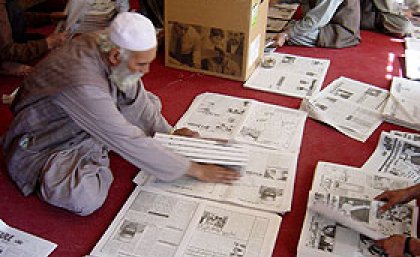
In a first for Australia and the Pacific, The University of Queensland has won the right to host UNESCO's global World Press Freedom Day conference and Guillermo Cano World Press Freedom Prize-giving ceremony in 2010.
Announcing UNESCO's decision to stage the World Press Freedom Day headline event in Brisbane next year, Director-General Koichiro Matsuura said his organisation was "proud to hold this ceremony in your wonderful country, and for the first time in the Pacific region".
The UNESCO/Guillermo Cano World Press Freedom Prize honours a person, organisation or institution that has made an outstanding and courageous contribution to the defence and/or promotion of press freedom anywhere in the world.
The theme of World Press Freedom Day on 3 May 2010 is 'Freedom of Information: The Right to Know', and UQ's conference will focus particularly on freedom of expression issues in the Asia-Pacific region.
UQ Vice-Chancellor Professor Paul Greenfield said UQ was proud to support UNESCO's efforts to uphold and engender public accountability and media freedom.
"UNESCO is the only UN agency with a mandate to defend media freedom, and too often it has cause to condemn the deliberate killing of a journalist or journalists," Professor Greenfield said.
"One of this conference's purposes will be to honour reporters who were assassinated or harmed because they exposed or threatened to expose the truth.
"UQ educates journalism students who may one day work in places where their profession makes them targets, and we regard this conference as important for their safety as well as for the global flow of accurate information."
UQ celebrates its centenary in 2010 and its journalism school is Australia's oldest.
Professor Michael Bromley, Head of the School of Journalism and Communication, said he hoped the conference would also encourage a wider 'fringe' program of activities in Brisbane to promote the importance of media freedom to the general public.
"Our School has been actively pursuing the World Press Freedom Day project for about 18 months. This is a high-level, global UN Day, and it will attract large numbers of delegates from all around the world," Professor Bromley said.
Planning for the event was now under way, with a World Press Freedom Day 2010 Organising Committee, including senior media industry representatives, soon to be appointed to oversee the event.
Media: Associate Professor Martin Hadlow, School of Journalism and Communication (m.hadlow@uq.edu.au, 07 3365 1393) or Eliza Plant at UQ Communications (07 3365 2619)
.jpg)


